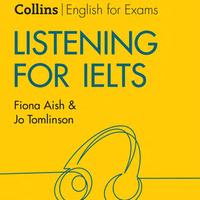3- 25
Emma: Right, shall we get started on some of the content?
Tom: That's a good idea. We haven't got that much time. Does anyone know anything about their topics?
Alex: I know quite a lot about cyclones.
T: Do you?
A: Well I studied them at high school, too. You know, cyclones usually start near the equator. They need quite warm water to form. Above the warm water. the vapour in the air forms clouds, and if there is low pressure. then these clouds will start to rotate.
T: Isn't it also the fact that the Earth rotates too which makes the clouds spin more?
A: Yes, that too. Once they begin. they can either lose momentum or keep gathering momentum until they hit land - these ones are called mature cyclones. Luckily, as soon as they hit land, they start to lose momentum and fade away. Just because they don't have the warmth of the ocean underneath.
E: Well, that's a relief!
A: They can still be really destructive. It's like a big circle of wind. They blow strongly up to the eye of the storm, the centre, where everything is really quiet, where there's no wind or anything. But then the other side hits and the winds blow just as strongly but in the other direction! It's just amazing! Yes, I would really like to cover that.
E: Well, it looks like we've got it all arranged, then!

